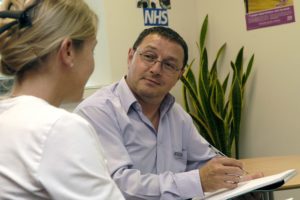Your IVF treatment explained
The IVF pre-assessment visit
Your first visit, as with all the other treatments, will be mainly an information gathering and giving session. A nursing specialist in infertility will explain the various steps of treatment to you and will also discuss the drugs which are used and how they are taken and any complications or side effects which might occur along the way. The nurse will also ask you to sign some consent forms and will organise blood tests and possibly a semen test.
IVF clinic
Next you will visit the fertility specialist (a doctor) who will go over what is involved with your treatment and will give you your treatment schedule. This is basically a plan of your treatment and will give you a rough idea of when you will have scans, blood tests and the actual egg collection. You will also be prescribed all your drugs at this stage. You will see the nursing staff after this appointment and they will ensure that you know how to obtain your drugs and book your scans.
IVF Treatment
1. Ovarian Stimulation (egg production)
Your chances of success are greatly increased if your ovaries are stimulated using drugs called gonadotrophins (i.e.Metrodin, Puregon, Menopur) to produce a large number of eggs. This is doubly useful because it increases the chances that some will be fertilised and any excess embryos can be frozen. The drug stimulation is exactly the same as for IUI but the doses of some drugs are higher in order to produce more eggs, ideally between 6 and 12.
2. Monitoring Egg Development
It is very important during IVF to carefully monitor the production of eggs because many more are produced at one time than would normally be produced. It is possible for the ovaries to become over stimulated and this can lead to Ovarian Hyperstimulation Syndrome (OHSS), an illness which is usually avoided by careful monitoring (more information is available on the OHSS page). The development of the follicles is measured using vaginal ultrasound scans and regular blood tests. When the eggs reach a diameter of about 16millimetres a hormone called HCG (booster) is injected. This matures the eggs before they are collected using a fine needle approximately 36 hours later.
3. Egg Collection and Insemination
The egg collection is a relatively simple procedure which is carried out under heavy sedation. Mature eggs are removed from the follicles in the ovary using a fine needle which is guided by a vaginal ultrasound probe. The eggs are sucked through the needle and placed in special fluid (culture medium) which keeps them alive whilst they are incubated with sperm. The best sperm are selected from the semen sample and placed in the same fluid as the eggs. They are then left overnight and examined the next day to see if they have fertilised. If they have fertilised the resulting embryos are assessed the following day for growth and quality (approximately 48hours after egg collection).
4. Embryo Transfer
One, two (or in exceptional circumstances, and only in cases where the woman is 40 years of age or more, three) of the best embryos are loaded into a fine catheter which is then passed into the woman?s womb through the cervix. This is a very simple procedure and no anaesthetic or sedation is needed.
5. Hormonal Support after Transfer
As the hormone levels are down-regulated (suppressed) at the beginning of your cycle any pregnancy needs to be supported in the early stages. This is done using either progesterone pessaries (Cyclogest) or injections.
6. Care following Treatment
We will carry out a pregnancy test 14 days after embryo transfer. If the test is positive then an ultrasound scan is performed 4 weeks later to confirm the pregnancy. If however, treatment fails for whatever reason (and it is important to remember that treatment is more likely to fail than work) you will be given the opportunity to discuss this with a member of staff and to talk about any future treatments.
Treatment failure can be a devastating experience and a very trying time for you and your partner. Our counsellor is always available if you and your partner would like to chat to someone who is independent of the clinic. More information is available on the Counselling page.
